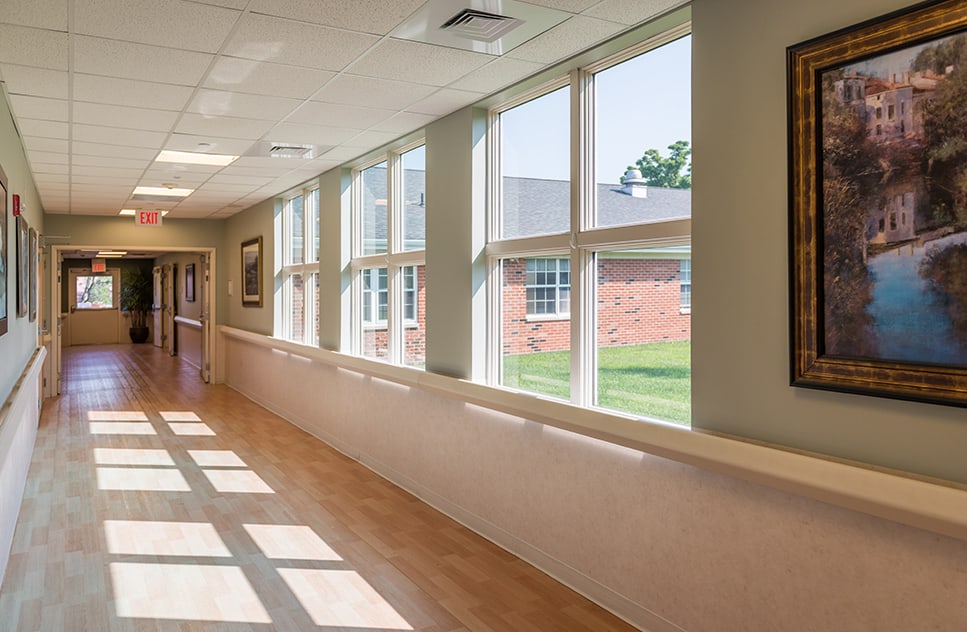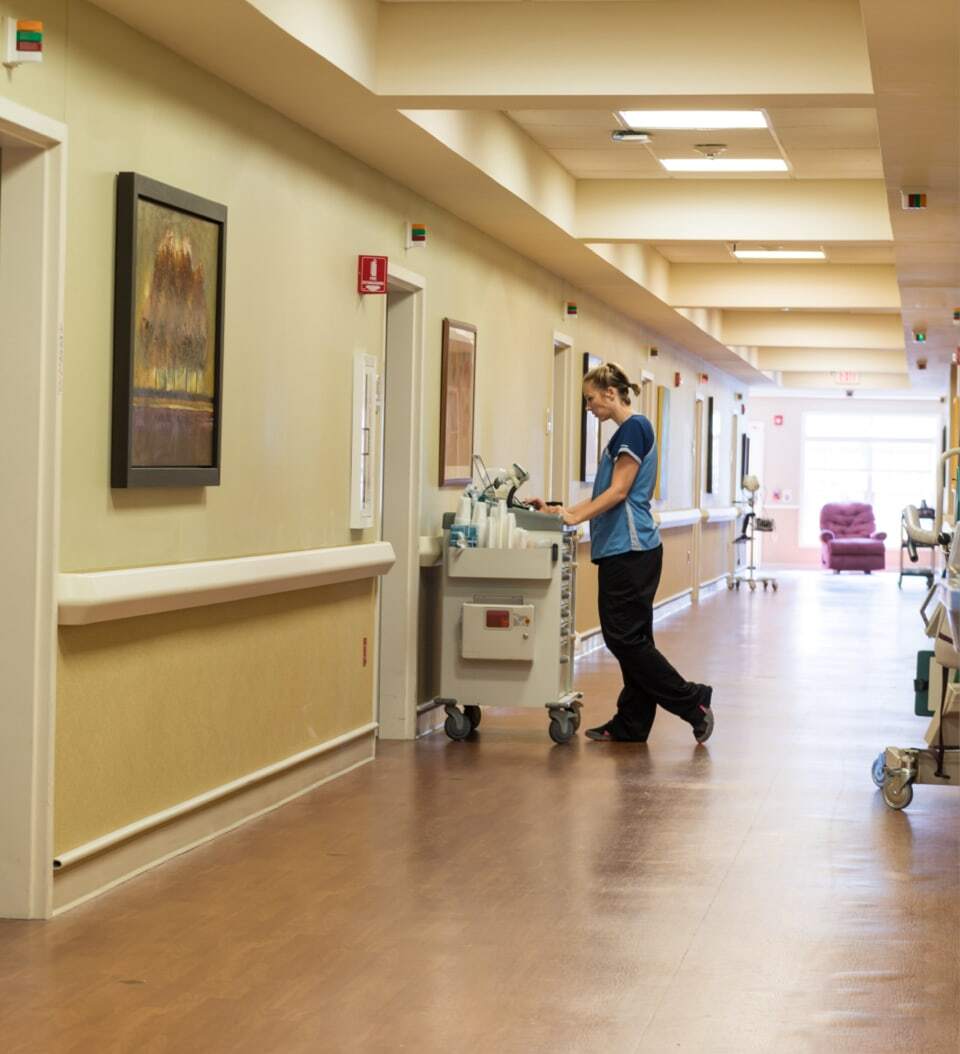Transitioning from a hospital to skilled nursing can be daunting for older adults and their loved ones. Older adults may be hesitant to leave their familiar surroundings and daily routines, and caregivers may worry about finding the right level of support for their loved ones.
With proper planning and understanding, especially when older adults desire to balance independence with the necessity for personalized care and rehabilitation, this transition can lead to improved quality of life for your loved ones.
Differences Between Hospital Care & Skilled Nursing
Hospital care is often intense and focused on acute medical needs. Skilled nursing, on the other hand, offers a blend of medical care and daily living support aimed at long-term recovery and quality of life. This distinction is crucial as it marks a shift from emergency treatment to ongoing care.
When to Choose Skilled Nursing
Recognizing the right time for skilled nursing is vital. Signs that an older adult may need skilled nursing can include the following:
- Frequent hospital visits
- Recuperating from surgery or an illness
- Difficulty managing daily tasks after hospitalization
- Requiring constant support and supervision
- Chronic health conditions that require specialized nursing support
- Long-term care residents in need of a higher level of medical care
Discussing these signs with healthcare providers can guide families in making an informed decision.
Benefits of Skilled Nursing
Skilled nursing provides comprehensive and personalized professional support, including emotional support, compassionate medical care, and extensive rehabilitation services, that may be difficult to access at home or in other settings.
Services and amenities available in skilled nursing include:
- Private and semi-private rooms
- 24/7 nursing staff
- On-site emergency response teams
- Mobility transfers, for example, from bed to chair
- Transportation for medical treatment

Other Services
Prompt medical support from a skilled and experienced on-site nursing team offers:
- Quick medical assistance
- Help in resolving minor issues
- A reduction in the need for ER visits
Assistance with activities of daily living allows residents to maintain dignity and independence while receiving the care they need. These include:
- Dressing
- Bathing
- Dining
- Toileting assistance
Regular health assessments by nurses conduct regular health monitoring, such as:
- Checking vital signs
- Supporting residents with medication management
- Tracking any developments in health status
Preventive care nursing services make sure that residents receive the medical attention they need around the clock, which includes:
- Supporting residents by using fall prevention strategies
- Providing essential services like wound care
- Assisting with health education to address potential health risks early
Care coordination and support include other team members, such as:
- Physicians
- Therapists
- Specialists
Rehabilitation Services
Rehabilitation includes customized care programs focused on holistic support and around-the-clock medical care with modern techniques, technology, and amenities. Engagement in social and recreational activities is also essential for mental and emotional well-being.
Services and amenities in rehabilitation include:
- Nourishing, healthy meals tailored to dietary needs
- Fitness classes, including low-impact exercise options like yoga and Tai Chi
- Rehabilitation gym
- Therapy equipment
- Physical, occupational, and speech therapy
- Wellness support
How to Transition from a Hospital to Skilled Nursing
Family members and caregivers play a pivotal role in this transition. Their support, understanding, and involvement can significantly ease the process. Being proactive, empathetic, and well-informed helps with a smooth transition for everyone involved.
Transition Tips for Seniors & Families
Older adults and their families may face various emotions, from fear and uncertainty to excitement and relief. Preparation is key to a successful transition.
Have Open & Honest Discussions
Communication is key during this process. Encourage your loved one to express their feelings, thoughts, concerns, and preferences. Listen with empathy and work together to find a solution to accommodate everyone’s needs.
Tour Skilled Nursing Communities
Moving can be overwhelming for anyone, especially for older adults who may have lived in their home for many years. Touring potential skilled nursing communities and conducting assessment visits are vital steps.
These visits allow you to gauge the environment, meet the staff, and assess the quality of care provided. It’s an opportunity to make sure the community aligns with your loved one’s needs and expectations. Packing familiar items such as pictures, books, or other personal belongings can help create a sense of continuity and familiarity in their new living space.
Plan Regular Visits
Regularly visiting your loved one can ease the transition for them and you. Schedule visits before the move, and continue once they have settled. These visits can provide comfort and reassurance as they adjust to their new surroundings.
Find Comprehensive, Professional, & Personalized Care
Transitioning from a hospital to skilled nursing is a significant step for older adults to receive personalized medical care and full support. By recognizing the right time for this transition and preparing thoughtfully, older adults and their families can look forward to a new chapter filled with compassionate care and comfort.
Contact Kingston of Miamisburg for more information on skilled nursing and to find out if it’s the right time for your loved one to start this new chapter. The right decision can make all the difference in a smooth and fulfilling transition.







